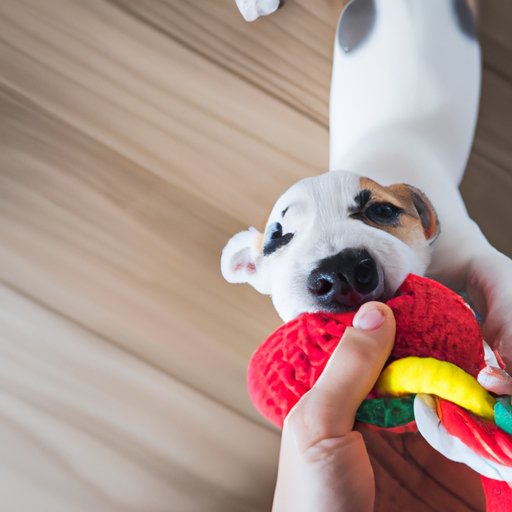
Introduction
There’s nothing quite like getting a new puppy. They’re cute, cuddly, and bring joy to our lives. However, one aspect of puppy ownership that can cause frustration is biting. Biting is a common problem among puppies and can lead to people avoiding them. In this article, we’ll provide practical advice on how to train your puppy to stop biting.
Teach Bite Inhibition
Bite inhibition is a dog’s ability to control the force of its bite. This is crucial because even though a puppy’s bite may not hurt now, as it grows up, it can become a serious problem. One of the ways to teach bite inhibition is through interaction with littermates. When puppies play with each other, they learn to bite softly. If one puppy bites too hard, its littermate will let out a yelp. As a puppy owner, you can use this same principle. When your puppy bites too hard, say “ow” or “ouch” in a sharp tone and withdraw your attention for a few seconds. This signals to the puppy that it has bitten too hard.
Provide Chew Toys
All puppies need to chew, and it’s important to redirect this urge away from your hands and feet. Chew toys are a perfect solution for this. Puppies have a natural urge to gnaw on things, and appropriate chew toys provide an outlet for this behavior. Make sure to choose chew toys that are the right size for your puppy and are made of safe materials. You can also freeze some chew toys to help with teething discomfort.
Keep Them Stimulated
Puppies have a lot of energy, and if they don’t have an outlet for it, they can become destructive. This is why exercise and mental stimulation are crucial for puppies. Interactive toys and games are a great way to keep your puppy engaged and burn off excess energy. Make sure to play in a safe and controlled environment, and avoid overstimulating your puppy.
Avoid Rough Play
Even though it may be tempting to play rough with your puppy, it’s not a good idea. Rough play can encourage biting behavior, and it can be difficult for puppies to distinguish between playtime and biting time. Avoid wrestling or engaging in other rough play until your puppy learns proper bite inhibition.
Socialize Your Puppy
Socialization is a crucial aspect of puppy training. It teaches puppies appropriate behavior and allows them to interact with other dogs and people in a safe and controlled environment. Socialization can also help with bite inhibition. When puppies interact with other dogs, they learn how to play without biting too hard. Make sure to start socializing your puppy early and in a controlled setting.
Use Positive Reinforcement
Praising and rewarding good behavior is more effective than punishing bad behavior. When your puppy does something right, make sure to reward it with treats or praise. If it has a biting episode, try withdrawing your attention instead of scolding it. This will reinforce positive behavior and help your puppy understand what is expected of it.
Seek Professional Help
Sometimes, despite your best efforts, biting behavior may escalate. In this case, it’s best to consult a professional dog trainer or behaviorist. These professionals can assess the situation and provide practical advice and training techniques to help you and your puppy overcome the biting behavior.
Conclusion
Training a puppy to stop biting behavior takes time, patience, and consistency. By following the tips outlined in this article, you can teach your puppy appropriate behavior and avoid frustration. Remember to be consistent, use positive reinforcement, and consult a professional if the biting behavior becomes too much to handle. With time, your puppy will learn how to control its biting behavior, and you’ll be able to enjoy your time together even more.





